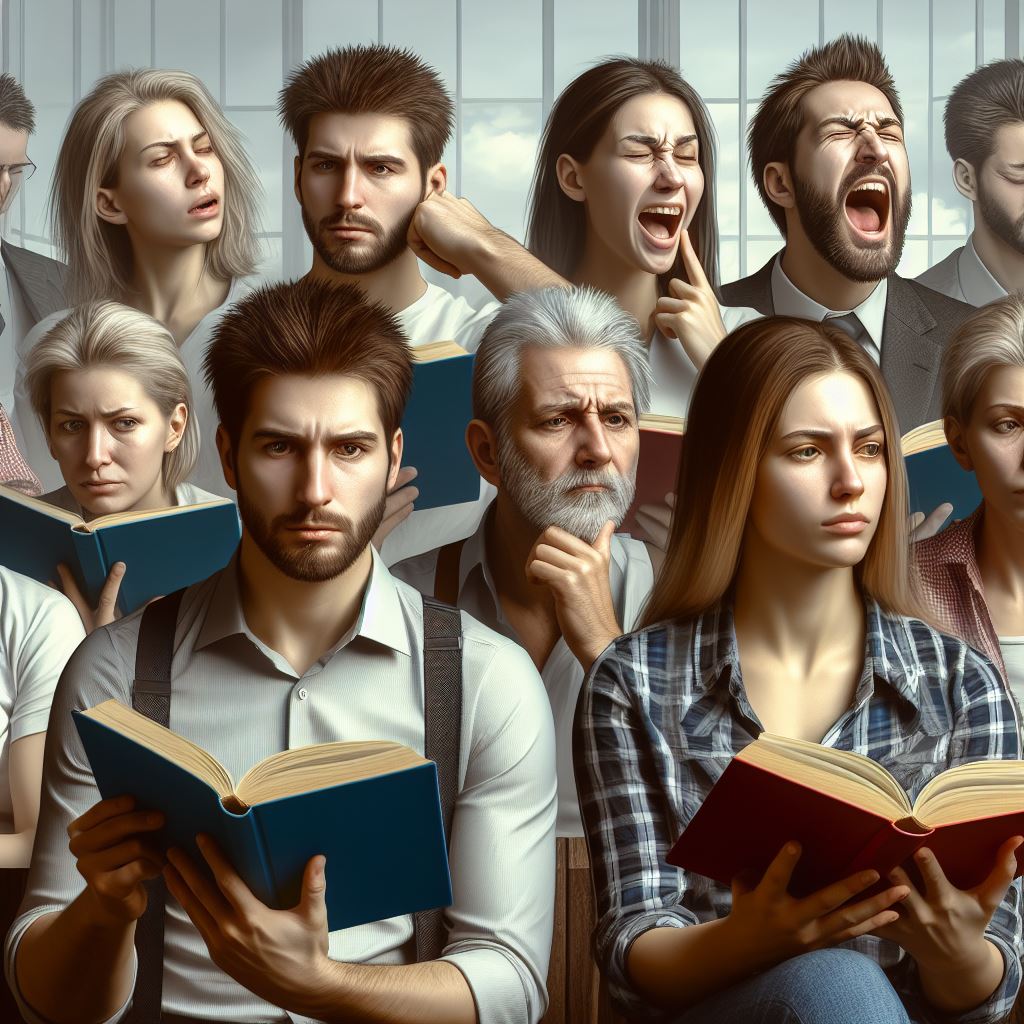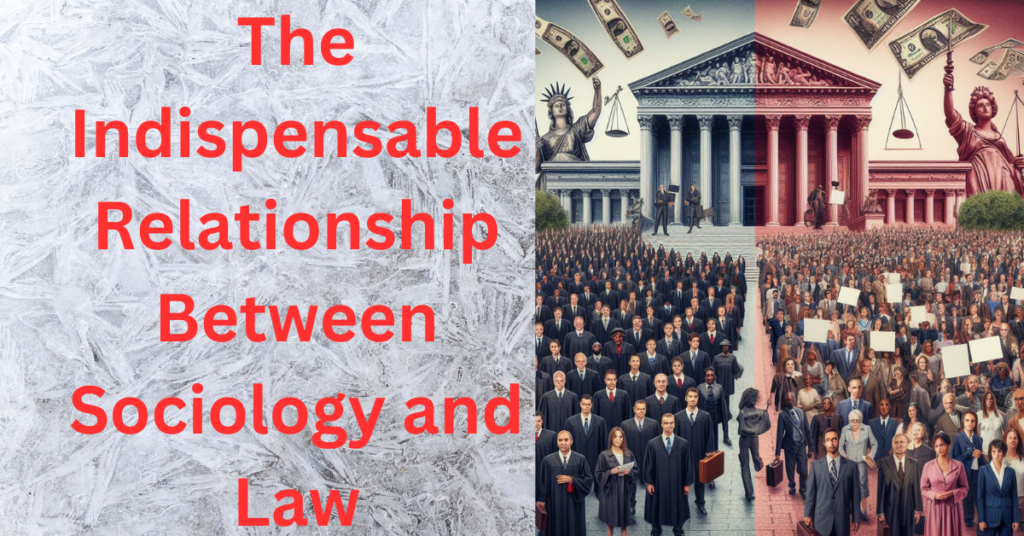Disha Dahiya
Stories and literature wield an unparalleled influence on society, shaping our perceptions, values, and understanding of the world. From ancient myths passed down through oral traditions to contemporary novels that reflect our modern complexities, the power of storytelling transcends time and culture. This critical literary introduction seeks to explore the multifaceted impact of literature on society, digging into its ability to provoke introspection, challenge societal norms, and foster empathy.

At the heart of this discussion lies the fundamental role of stories as a medium for human connection. Through narratives, individuals find a common ground to share their experiences, fears, and aspirations, forging a collective understanding of the human condition. Literature, as the written form of storytelling, amplifies this connection by immortalizing narratives that resonate across generations. Moreover, stories and literature serve as mirrors that reflect and refract societal values and beliefs. They not only capture the zeitgeist of their time but also have the power to shape it. By presenting alternative perspectives and challenging established norms, literature becomes a catalyst for societal change, prompting readers to question the status quo and envision new possibilities.
Furthermore, stories have a profound impact on the moral and ethical fabric of society. Through compelling characters and intricate plots, literature explores the complexities of human nature, posing timeless questions about morality and the human condition. This exploration often leads to a deeper understanding of oneself and others, fostering empathy and compassion within society. We can also say that stories and literature are not merely forms of entertainment or escapism; they are powerful tools that shape our understanding of the world and our place in it. Through their ability to provoke thought, challenge norms, and foster empathy, stories and literature continue to be indispensable elements of the human experience.
The influence of stories and literature on society has been a subject of contemplation for philosophers and thinkers throughout history. According to Plato, “Books give a soul to the universe, wings to the mind, flight to the imagination, and life to everything.” Here Plato emphasizes the transformative power of literature in enriching human experience and expanding the boundaries of thought. Aristotle believed that literature, particularly tragedy, had a profound effect on the audience by evoking emotions such as pity and fear. He saw storytelling as a means to achieve catharsis, a purification of these emotions, which he considered essential for the well-being of individuals and society. Thomas Hobbes, in his political philosophy, highlighted the importance of storytelling in the formation of societal structures. He argued that stories and myths played a crucial role in creating a shared understanding of authority and governance, which are essential for maintaining social order. Modern literary criticism, influenced by various literary theories, emphasizes the role of literature in shaping cultural narratives and challenging established norms. Literary critics analyze how storytelling techniques and narrative structures influence the way we perceive the world and ourselves. Many writers and authors have expressed the transformative power of literature through their works. For example, Maya Angelou said, “Any book that helps a child to form a habit of reading, to make reading one of his deep and continuing needs, is good for him”. These ideas illustrate the profound impact of stories and literature on society, from shaping individual minds to influencing cultural and political structures.
Literature as a Means of Fostering Human Connection
Literature, with its ability to transcend time and space, serves as a powerful medium for fostering human connection. Through the art of storytelling, literature brings people together, creating a shared space where diverse perspectives, emotions, and experiences converge. Stories are a fundamental way in which humans connect with each other. They provide a medium for sharing experiences, emotions, and ideas across time and space. Plato noted that “Those who tell the stories rule society” highlighting the influential role of storytellers in shaping societal narratives and norms.
At the heart of this discussion lies the concept of empathy, which plays a pivotal role in fostering human connection through literature. As philosopher Martha Nussbaum argues, literature has the unique ability to cultivate empathy by allowing readers to step into the shoes of characters from different backgrounds and cultures. By immersing themselves in the lives of fictional or historical figures, readers develop a deeper understanding of the complexities of human existence, leading to greater compassion and connection with others.
Furthermore, literature serves as a bridge that transcends barriers of time, space, and culture, uniting individuals across generations and geographical boundaries. The works of classic writers like Shakespeare or contemporary authors like Chimamanda Ngozi Adichie provide readers with a window into the human experience, highlighting universal themes of love, loss, and resilience that resonate across diverse contexts. Through literature, individuals can find common ground, share their stories, and recognize the shared humanity that binds them together. Literature’s capacity to evoke empathy and transcend cultural divides makes it a potent force in fostering human connection. By engaging with literary works that challenge their perspectives and broaden their horizons, individuals can forge meaningful connections with others, enriching their lives and deepening their understanding of the world.
Literature as a Medium of Shaping Cultural Identity and Preserving Collective Memory
Literature has long been recognized as a powerful medium for shaping cultural identity and preserving collective memory. Through storytelling, writers capture the essence of a society’s values, beliefs, and traditions, thereby contributing to the formation of its cultural identity. This critical literary introduction aims to explore how literature serves as a mirror that reflects the cultural ethos of a society, drawing insights from the perspectives of philosophers, theorists, and writers.
Philosopher Martha Nussbaum highlights the role of literature in shaping cultural identity by emphasizing its ability to cultivate empathy. According to Nussbaum, literature allows readers to understand and empathize with the experiences of others, thereby fostering a sense of shared humanity and cultural belonging. Similarly, literary theorist Mikhail Bakhtin’s concept of the “chronotope” underscores the interconnectedness of literature and culture, suggesting that literary works are deeply rooted in their cultural context and contribute to the construction of cultural identity. Moreover, writers themselves have often reflected on the role of literature in preserving collective memory. Nobel laureate Toni Morrison once remarked that literature enables societies to remember and confront their past, thereby contributing to the preservation of collective memory. By portraying historical events and cultural traditions, literature serves as a repository of a society’s collective memory, ensuring that important aspects of its history are not forgotten but rather celebrated and learned from.

Hence, literature plays a crucial role in shaping cultural identity and preserving collective memory by reflecting the values and experiences of a society. Through the insights of philosophers, theorists, and writers, we can appreciate the profound impact of literature on the formation and preservation of cultural identity and collective memory.
Literature as a Promoter of Empathy, Understanding, and Moral Reflection
Literature has long been celebrated as a powerful tool for promoting empathy and understanding among individuals. Through the art of storytelling, literature allows readers to immerse themselves in the lives and experiences of others, fostering a sense of empathy by enabling them to see the world from different perspectives. This critical literary introduction aims to explore how literature serves as a catalyst for empathy and understanding, drawing insights from the perspectives of philosophers, theorists, and writers.
Literary theorist Wayne C. Booth argues that literature provides a safe space for readers to explore complex ethical and moral dilemmas through the experiences of fictional characters, allowing them to reflect on their own values and beliefs. Moreover, writers themselves have often reflected on the role of literature in promoting empathy and moral reflection. Nobel laureate Toni Morrison once remarked that literature enables individuals to confront difficult truths about themselves and society, fostering a deeper understanding of human nature and the complexities of the human condition. By engaging with literary works that challenge their perspectives and ethical frameworks, readers are encouraged to reflect on their own moral compass and empathetic capacities, ultimately contributing to a more compassionate and understanding society. Literature’s ability to evoke empathy, stimulate understanding, and provoke moral reflection makes it a potent force for positive social change. Through the insights of philosophers, theorists, and writers, we can appreciate the profound impact of literature on promoting empathy and moral understanding, thus enriching the human experience.
The influence of stories and literature on society is profound and multifaceted. Throughout history, literature has played a pivotal role in shaping societal narratives, influencing cultural identities, and fostering human connections. By digging into the human experience and exploring universal themes, literature transcends time and culture, leaving an indelible mark on the collective consciousness of humanity. Through storytelling, writers capture the essence of their societies, preserving collective memory and shaping cultural identities. Moreover, literature acts as a catalyst for societal change, challenging established norms and prompting introspection. Furthermore, literature’s impact extends beyond societal structures, influencing individual minds and hearts.
As we navigate the complexities of the modern age, literature remains an indispensable companion, guiding us through the human experience and illuminating the path forward. Through its ability to provoke thought, challenge norms, and foster empathy, literature stands as a testament to the enduring power of storytelling. As we continue to write and read, we carry forward the legacy of literature, ensuring that its influence on society remains as potent as ever. Hence, the impact of literature on society is profound and far-reaching, shaping our perceptions, values, and understanding of the world. From fostering human connections to challenging societal norms, literature continues to wield its influence across time and culture, enriching the human experience and shaping the course of history.
The views and opinions expressed by the author/s in this article are their personal opinions and do not represent the views of PureSociology. You can contact the author/s at [email protected]. The details of the authors are:
Ms. Disha Dahiya is an Assistant Professor, Department of English, Guru Kashi University, Bathinda



Wow, marvelous weblog layout! How lengthy have you ever been running a
blog for? you make running a blog look easy. The entire look of your site is magnificent, as well as the content material!